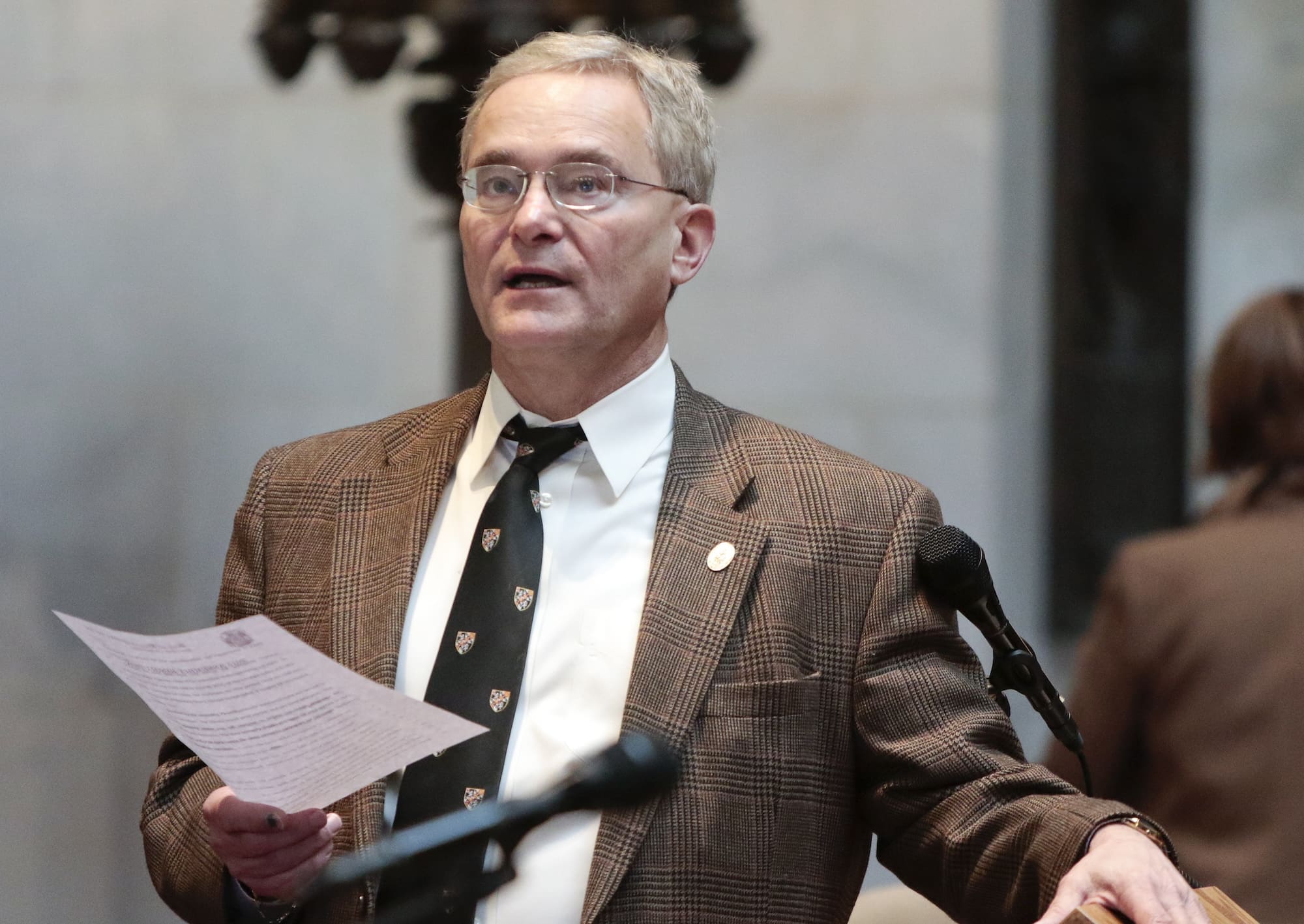3 bills making their way through the Republican-controlled Wisconsin Legislature

Emily Singer
Republican lawmakers want to cut taxes for the rich, ban books from schools, and pass anti-abortion legislation.
Wisconsin’s Republican-controlled Legislature is working to pass a string of bills in its current session that would punish abortion providers and cut taxes for the rich, bedrock issues in the GOP’s culture wars.
These bills are unlikely to ever make it into law, since Democratic Gov. Tony Evers would veto them if they made it to his desk.
Republican gerrymandered majorities in the state House and state Senate are nonetheless continuing to introduce such legislation.
Here are three right-wing culture war bills Republican lawmakers in Wisconsin have introduced:
Anti-abortion “born alive” bill
Nearly a dozen of Wisconsin’s 21 GOP state senators on Feb. 14 introduced S.B. 61, an anti-abortion bill that would mandate “requirements for children born alive following abortion or attempted abortion.”
The bill would require doctors to provide medical attention to infants “born alive” after an abortion attempt, or else face up to six years in prison, a $10,000 fine, or both.
The bill is similar to legislation passed in the U.S. House of Representatives in January.
That bill was condemned by the American College of Obstetricians and Gynecologists and the abortion rights group NARAL Pro-Choice America, which said it is unnecessary and could interfere with private medical decision-making.
Nearly all abortions happen before fetal viability, that is, when a fetus could survive outside the uterus. Only 1% of abortions take place later in pregnancy, and those are almost always due to fatal fetal abnormalities or because the pregnant person’s life is at risk. Those abortions rarely lead to live births. ABC News reported that in 2017, for example, in neighboring Minnesota, out of 10,000 abortions later in pregnancy, only three led to a live birth.
“The offensively named ‘born-alive’ legislation is another cruel and misguided attempt to interfere with evidence-based medical decision making between patients and their physicians,” Iffath Abbasi Hoskins, the president of the American College of Obstetricians and Gynecologists, said in a statement in January after House Republicans passed their version of the “born alive” bill.
Hoskins added:
Abortions later in pregnancy are the result of complex decisions, and patients make these health care decisions thoughtfully, carefully, and painstakingly. These incredibly difficult medical decisions should be made by patients in consultation with their physicians and without any external interferences. Instead, this bill takes decision making out of the hands of families in crisis and limits the freedom of our patients to make the decisions that are right for them.
Tax cuts for the rich
On Jan. 27, a dozen state senators introduced S.B. 1, a bill that, if passed, would set a flat 3.25% income tax for all Wisconsin residents.
“Moving to a 3.25% flat tax will provide a tax cut for ALL Wisconsinites,” Republican Senate Majority Leader Devin LeMahieu, who introduced the legislation, said in a news release.
Experts say flat tax proposals like the one in Wisconsin disproportionately benefit the wealthy and could raise taxes for lower-income earners.
“Flat taxes have some surface appeal but come with significant disadvantages,” Eli Byerly-Duke and Carl Davis, analysts at the Institute on Taxation and Economic Policy, wrote in an article published in January. “Critically, a flat tax guarantees that wealthy families’ total state and local tax bill will be a lower share of their income than that paid by families of more modest means.”
An analysis from ITEP found that a similar flat tax proposal in Arizona would lead to a $16,000 annual tax cut for the top 1% of earners, while middle-income earners would see just $58 in cuts per year.
Book bans
Republican-controlled states such as Texas and Florida have been working to ban from school libraries books that they deem to be inappropriate, sexually explicit, or that contain topics of race, culture, or religion that Republicans deem to be what they call “woke.”
On Jan. 27, a trio of Republican state senators introduced S.B. 10, a bill that would regulate “pupil or minor access to harmful material in public libraries and to harmful material or offensive material in public schools.”
According to an analysis of the bill by the Wisconsin Legislative Reference Bureau posted on the Legislature’s website, “Beginning in the 2024-25 school year, the bill requires each school board and operator of an independent charter school to adopt a policy that specifies criteria for determining whether certain material is offensive material.”
The bill’s language specifically mentions pornographic or sexually explicit materials as examples of what should be banned. But the text gives schools broad discretion over what they deem to be “offensive material.”
In Texas, for example, politicians have said that books that have LGBTQ characters or include discussions of racism or puberty, for example, are explicit or inappropriate and have banned them.
Published with permission of The American Independent Foundation.




